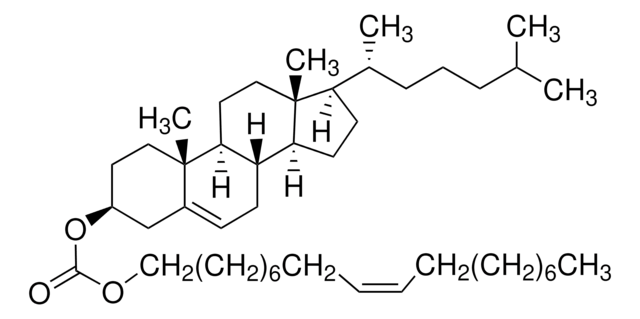156345
2,3-Dimethyl-2,3-dinitrobutane
98%
Synonym(s):
2,3-Dinitro-2,3-dimethylbutane
Sign Into View Organizational & Contract Pricing
All Photos(2)
About This Item
Linear Formula:
(CH3)2C(NO2)C(CH3)2NO2
CAS Number:
Molecular Weight:
176.17
EC Number:
MDL number:
UNSPSC Code:
12352100
PubChem Substance ID:
NACRES:
NA.22
Recommended Products
Quality Level
Assay
98%
form
solid
mp
214-215 °C (dec.) (lit.)
functional group
amine
nitro
SMILES string
CC(C)([N+]([O-])=O)C(C)(C)[N+]([O-])=O
InChI
1S/C6H12N2O4/c1-5(2,7(9)10)6(3,4)8(11)12/h1-4H3
InChI key
DWCLXOREGBLXTD-UHFFFAOYSA-N
Application
2,3-Dimethyl-2,3-dinitrobutane (DMNB) is an additive required for commercial plastic explosives. The product has been used to develop a fast, square-wave voltammetric measurement protocol of taggant (DMNB explosive) at an unmodified carbon fiber electrode. This protocol used a phosphate buffer solution at pH 7.0.
Signal Word
Danger
Hazard Statements
Precautionary Statements
Hazard Classifications
Acute Tox. 2 Oral
Storage Class Code
6.1A - Combustible acute toxic Cat. 1 and 2 / very toxic hazardous materials
WGK
WGK 3
Personal Protective Equipment
dust mask type N95 (US), Eyeshields, Gloves
Choose from one of the most recent versions:
Already Own This Product?
Find documentation for the products that you have recently purchased in the Document Library.
T V Reddy et al.
Journal of applied toxicology : JAT, 14(3), 231-232 (1994-05-01)
Female SENCAR mice initiated with 2,3-dimethyl-2,3-dinitrobutane (DMDNB) and promoted with 12-O-tetradecanoylphorol-13-acetate (TPA) via the SENCAR mouse skin bioassay did not exhibit a significant increase in skin tumors. The mice received 20 mg kg-1 DMDNB divided into six intragastric doses over
Sensitive Voltammetric Sensing of the 2,3-Dimethyl-2,3-dinitrobutane (Dmnb) Explosive Taggant
Wang JT, et al.
Electroanalysis, 18, 971-975 (2006)
Meaghan E Germain et al.
Inorganic chemistry, 46(11), 4422-4429 (2007-05-03)
Fluorescent sensors for the detection of chemical explosives are in great demand. It is shown herein that the fluorescence of ZnL* (H2L=N,N'-phenylene-bis-(3,5-di-tert-butylsalicylideneimine)) is quenched in solution by nitroaromatics and 2,3-dimethyl-2,3-dinitrobutane (DMNB), chemical signatures of explosives. The relationship between the structure
Shasha Song et al.
Journal of fluorescence, 30(3), 717-723 (2020-05-10)
The coordination polymers based on Zn(II) ions and the metal nodes which has chemical formula of {[Zn3(L)2(tib)2(H2O)2]·(DMF)2}n (1) was synthesized via using 1,3,5-tris(1-imidazolyl)benzene (tib) and 2,6-di(4-carboxylphenyl)pyridine-4-carboxylic acid (H3L) as ligands under solvothermal conditions. Given its strong luminescent emission at room
Veerasamy Sathish et al.
Dalton transactions (Cambridge, England : 2003), 46(48), 16738-16769 (2017-11-11)
The detection of chemical explosives is a major area of research interest and is essential for the military as well as homeland security to counter the catastrophic effects of global terrorism. In recent years, tremendous effort has been devoted to
Our team of scientists has experience in all areas of research including Life Science, Material Science, Chemical Synthesis, Chromatography, Analytical and many others.
Contact Technical Service









